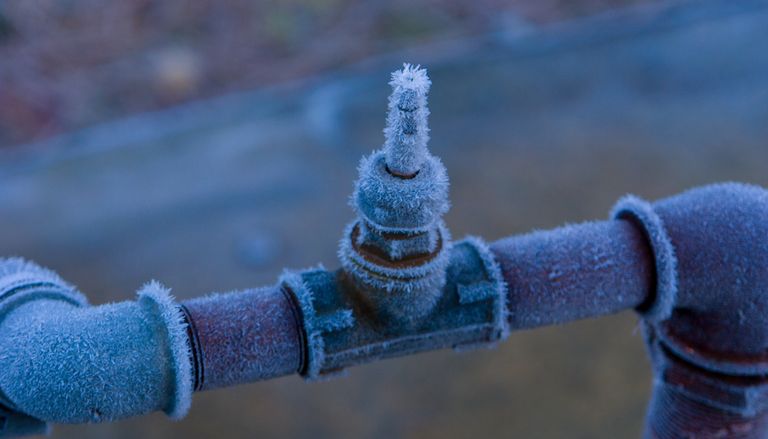Everybody has their own unique opinion on the subject of Prevent Frozen Pipes .

Winter can damage your pipes, especially by freezing pipelines. Below's how to avoid it from occurring and what to do if it does.
Introduction
As temperatures decrease, the risk of frozen pipes rises, possibly bring about pricey repair services and water damage. Understanding how to stop icy pipes is crucial for homeowners in chilly climates.
Recognizing Icy Pipes
What causes pipelines to ice up?
Pipelines freeze when exposed to temperature levels listed below 32 ° F (0 ° C) for prolonged periods. As water inside the pipelines ices up, it expands, taxing the pipeline walls and possibly triggering them to burst.
Threats and problems
Frozen pipes can cause water supply disruptions, residential property damage, and costly repairs. Ruptured pipes can flood homes and trigger comprehensive architectural damages.
Indicators of Frozen Piping
Recognizing frozen pipelines early can avoid them from bursting.
Exactly how to determine frozen pipes
Search for decreased water flow from taps, uncommon smells or sounds from pipelines, and noticeable frost on subjected pipelines.
Prevention Tips
Shielding susceptible pipes
Wrap pipes in insulation sleeves or use heat tape to shield them from freezing temperatures. Focus on pipes in unheated or external locations of the home.
Heating techniques
Maintain indoor spaces effectively heated up, especially locations with plumbing. Open up cupboard doors to allow cozy air to flow around pipes under sinks.
Protecting Exterior Plumbing
Garden pipes and exterior faucets
Disconnect and drain yard hoses before winter. Mount frost-proof faucets or cover outside taps with shielded caps.
What to Do If Your Pipelines Freeze
Immediate activities to take
If you think frozen pipelines, keep faucets open to eliminate stress as the ice melts. Use a hairdryer or towels soaked in warm water to thaw pipelines slowly.
Long-Term Solutions
Structural adjustments
Consider rerouting pipelines away from exterior wall surfaces or unheated areas. Add added insulation to attics, basements, and crawl spaces.
Updating insulation
Purchase premium insulation for pipes, attic rooms, and walls. Correct insulation assists maintain regular temperatures and reduces the danger of frozen pipelines.
Conclusion
Protecting against frozen pipelines requires aggressive procedures and quick reactions. By understanding the reasons, indicators, and safety nets, home owners can secure their plumbing throughout winter.
Helpful Tips to Prevent Frozen Pipes this Winter
UNDERSTANDING THE BASICS: WHY PIPES FREEZE AND WHY IT’S A PROBLEM
Water freezing inside pipes is common during the winter months, but understanding why pipes freeze, and the potential problems it can cause is crucial in preventing such incidents. This section will delve into the basics of why pipes freeze and the associated problems that may arise.
THE SCIENCE BEHIND FROZEN PIPES
When water reaches freezing temperatures, it undergoes a physical transformation and solidifies into ice. This expansion of water as it freezes is the primary reason pipes can burst. As the water inside the pipe freezes, it expands, creating immense pressure on the walls. If the pressure becomes too great, the pipe can crack or rupture, leading to leaks and water damage.
FACTORS THAT CONTRIBUTE TO PIPE FREEZING
Low Temperatures: Extremely cold weather, especially below freezing, increases the risk of pipes freezing. Uninsulated or Poorly Insulated Pipes: Pipes located in unheated areas, such as basements, crawl spaces, or attics, are more prone to freezing. Insufficient insulation or lack of insulation altogether exacerbates the problem. Exterior Wall Exposure: Pipes running along exterior walls are susceptible to freezing as they encounter colder temperatures outside. Lack of Heating or Temperature Regulation: Inadequate heating or inconsistent temperature control in your home can contribute to frozen pipes. PROBLEMS CAUSED BY FROZEN PIPES
- Pipe Bursting: As mentioned earlier, the expansion of water as it freezes can cause pipes to burst, resulting in significant water damage.
- Water Damage: When pipes burst, it can lead to flooding and water damage to your property, including walls, ceilings, flooring, and personal belongings.
- Structural Damage: Prolonged exposure to water from burst pipes can compromise the structural integrity of your home, leading to costly repairs.
- Mold and Mildew Growth: Excess moisture from water damage can create a favorable environment for mold and mildew growth, posing health risks to occupants.
- Disrupted Water Supply: Frozen pipes can also result in a complete or partial loss of water supply until the issue is resolved.
WHY CERTAIN PIPES ARE MORE PRONE TO FREEZING
- Location: Pipes located in unheated or poorly insulated areas, such as basements, crawl spaces, attics, or exterior walls, are at higher risk of freezing.
- Exterior Pipes: Outdoor pipes, such as those used for irrigation or exposed plumbing, are particularly vulnerable to freezing as they are directly exposed to the elements.
- Supply Lines: Pipes that carry water from the main water supply into your home, including the main water line, are critical to protect as freezing in these lines can affect your entire plumbing system.
- Underground Pipes: Pipes buried underground, such as those connected to sprinkler systems or outdoor faucets, can be susceptible to freezing if not properly insulated.
https://busybusy.com/blog/helpful-tips-to-prevent-frozen-pipes-this-winter/

Do you enjoy reading about 6 Ways to Prevent Frozen Pipes? Try to leave a remark down below. We will be happy to know your reactions about this blog post. In hopes that you come back again in the future. Enjoyed reading our post? Please share it. Help others find it. Thanks so much for going through it.
Rates